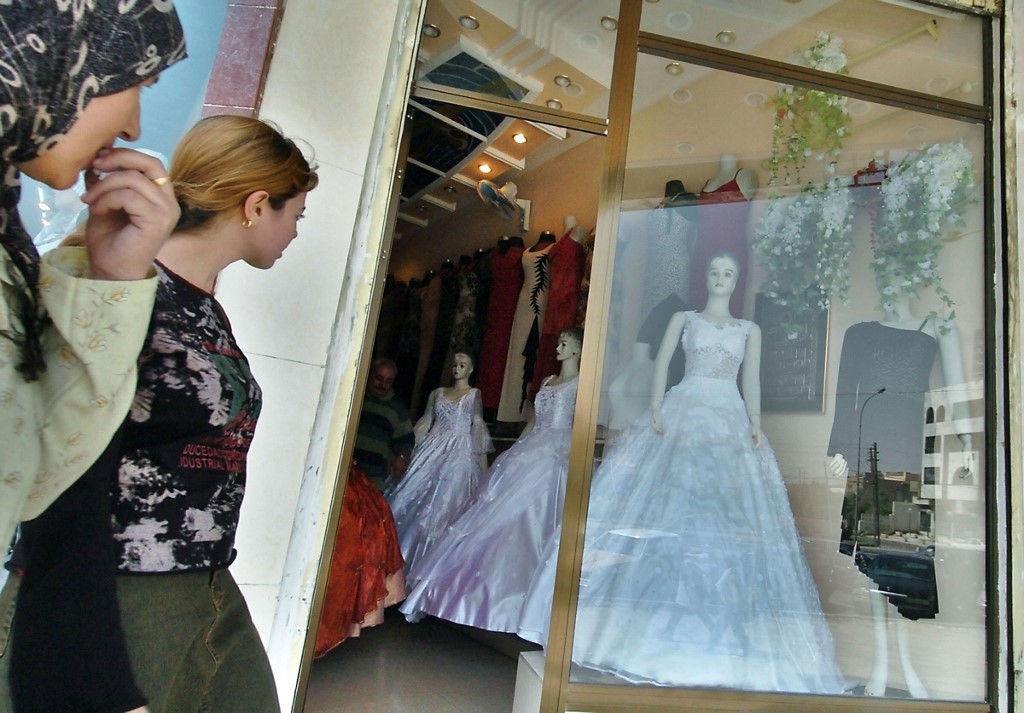This Is How Spinsterhood Has Become a Serious Social Problem That Threatens Lebanon and Arab Region

Spinsterhood phenomenon has become a nightmare that haunts youths and women in the Arab region, which has witnessed a significant increase in recent times.
What made it even more ugliness were the pressures of life, society and the judgments that are imposed on those who are late in taking this step.
Whatever the case, there is consensus among all that economic conditions are a major cause of this phenomenon, in addition to changing the priorities of youths and women, amid the high rates of divorce in the Arab world.
Several statistics indicate the high rates of spinsterhood in Arab countries that are proud of their preservation of religion and customs that encourage and desire marriage.
Also, spinsterhood has become one of the most serious social problems troubling the Lebanese people, in light of the difficult economic conditions they are going through over the past two years.
Social Dilemma
Spinsterhood is a term given to those who have exceeded the age of marriage, which is customary in every country, and did not marry, some may think that this term is applied to women without men, but it is specific to both genders.
The age of spinsterhood varies from country to country, while some rural societies consider that exceeding the age of 20 without marriage is considered spinsterhood, meanwhile, urban societies begin to call people over the age of 30 without marriage the title (spinster).
Arab societies suffer greatly from the phenomenon of spinsterhood, the reasons for each country varied from the other, including security, economy, poverty, education, and other social reasons.
According to a statistical study issued by the World Health Organization (WHO), Lebanon topped the list of Arab countries with a high rate of spinsterhood.
The number of unmarried males reached 95% of the total population, while the number of unmarried females reached 83% of the total population.
Iraq ranked second in terms of high rates of spinsterhood in the Arab world, as was affected by security, economic and political instability problems, the percentage of spinsterhood reached 85% for both genders.
Syria ranked third in terms of high rates of spinsterhood in the Arab world, as the war in Syria, migration outside the country and forced displacement within the country have also affected the Syrian people, the percentage of spinsterhood reached 50% for youths and 60% for girls.

On this, social researchers attribute the reasons behind the high rates of spinsterhood in the Arab world to several social and economic factors, most notably: “The duration of education, as many girls postpone the idea of marriage until the completion of university studies or graduate studies, and after she finishes her studies, she refuses to marry someone who is less educated than her.”
In addition to the fact that many youths face many financial problems, which is one of the most important obstacles to marriage, such as unemployment and the high costs of marriage, which leads to reduced chances of early marriage.
One of the other reasons is also the migration of youths abroad, as many youths migrate in search of work or education, which subsequently pushes them to settle abroad and marry foreign girls.

Spinsterhood in Lebanon
During the past month, a group of young Lebanese women launched a campaign on social media under the title “Marry me without a dowry,” in order to reduce the spinsterhood phenomenon in the country, the idea also received positive reactions, and the campaign moved to other Arab countries such as Syria, Egypt and Morocco.
Lebanese women attributed the reason behind the launch of this campaign to the emigration of a large number of Lebanese youths, in addition to the high cost of living resulting from the economic crisis that the country is going through.
This prompted many youths to refrain from marriage, because of their weak financial means in light of the high costs of marriage.
Activists believe that such a campaign will break the severity of spinsterhood, it is considered a civilized step and has many positive aspects. It indicates the desire of girls to help youths to overcome social and economic dilemmas and changing the prevailing ideas about the material requirements of marriage in Arab society.
However, according to a report published by the BBC, the campaign did not originate from Lebanon; rather, it was launched in Algeria and then in Jordan; but it spread quickly and interaction with it became greater when the campaign was allegedly under the supervision of Lebanese feminists.

On his part, Dr. and lawyer Tariq Shandab, Director of the International Center for Legal and Political Studies and the Protection of Freedoms, attributes in a statement to Al-Estiklal, the high rates of spinsterhood in Lebanon to “the dilapidated economic situation, unemployment, youth migration, low wages that do not correspond to the high cost of living, the rise in apartment prices, the participation of women in the labor market and the high costs of the wedding ceremony.”
Shandab blames the political authority in Lebanon for the spread of such societal crises, he adds by saying: “Social security in Lebanon is lacking in all respects, since the state does not have a social security system, which is related to price control in the country, starting from the price of the food item to the price of the apartment. In addition to the economic and political collapse, the banking crisis and the theft of depositors’ money, all this prompted the Lebanese youth not to think about getting married or leaving the country.”
Nour, a 32-year-old Lebanese woman, told to Al-Estiklal that “many Lebanese families do not care about the dowry in marriage; but it requires a man to own a house in order to get married in it, this is the reason for the disruption of marriage for many, given the difficulty of having the money needed to buy a house in light of the crisis the country is going through.”
According to press reports, the dowries in Lebanon range between $100,000 and $200,000, house prices vary from $300,000 in Beirut to $100,000 outside of Beirut.

Society's View
Despite the many forms of spinsterhood and its causes, social studies see that this phenomenon imposes itself in the Arab world, for nothing but purely societal reasons, which pertains to the negative attitude towards those who have delayed the age of marriage, which is customary in her country.
Since the openness of the new generation of youths and girls, and the rearrangement of their priorities does not make them immune to the society's view that abuses women who are over 30 years old and have not been married, criticisms follow them from everywhere, they are even subjected to verbal and moral violence, the reason is that they are spinsters, which is a very harsh word for them.
However, social researchers believe that the view of Arab societies has changed, it no longer links much the value and importance of women and their being to their social status, the evaluation of women on the basis of marriage and childbearing only declined, although this phenomenon is still worrying and in need of review and practical solutions.
On the other hand, Samar, a 35-year-old Lebanese lawyer, said in a statement to Al-Estiklal that “she doesn't feel like a spinster, and that her success in her work is one of her priorities.”
She believes that “marriage in itself is not a goal, it is no longer among the priorities of the young man or woman, although the desire to build a family remains."
“The most important reason for my delay in marriage is because my mentality has changed, as I am looking more for my financial independence by completing my studies and securing a job opportunity,” Samar added.

Away from terminology, reasons and studies, the current reality, according to observers, indicates a continuous rise in the rate of spinsterhood, which is no longer restricted to females only, but includes males as well, which would threaten the structure and cohesion of Arab societies as a result of its consequences.












